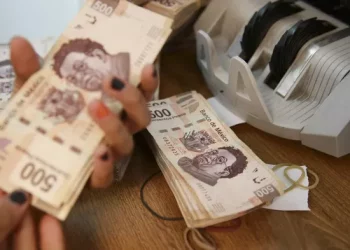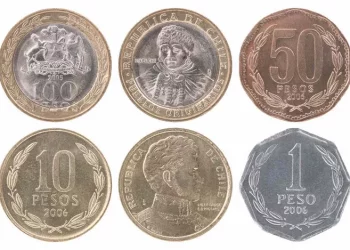Compared with the stock market, FX trading is a difficult market for non-technical novices to successfully understand and invest in.
The market moves unexpectedly almost every week.
To solve this problem, we use heuristics, mental shortcuts, and turn to other people’s behavior to make decisions.
But relying too much on these factors can get you into trouble.
To help prevent this, here’s a list of common cognitive biases that investors are most susceptible to.
Even allowing for losses, most traders find it hard to resist the urge to participate in the forex market.
Because, as Kahneman says, we’re not as rational as we think we are.
Irrational, random emotions fuel our choices.
This is useful in everyday life, but usually not when trading.
“It’s easy to double in this market!”
After hearing about it, it’s easy to see it as your cash cow.
But before you start thinking about the money tree to water, it’s a good idea to brace yourself and research the following biases and psychological factors that are prevalent in this market.
1. Everyone is doing it — Social approval You’ll notice that more and more people are studying the forex market and investing in it.
You might think that since so many people are comfortable trading, it must be worth trying, right?
When we’re not sure what choices we need to make, we look to other people’s behavioral guidelines.
Testing the behavior of most people to guide your choices is a heuristic method known as social identification.
Because forex trading is so complex and many people don’t fully understand it, they look for other clues to help them make a decision.
One of these tips is to see how many other investments are in a particular project.
Social approval can help us make everyday decisions.
But when it comes to putting your money into currency trading, try to look beyond the conventional wisdom.
2. Tell me how to do it — authority figures You may only be scratching the surface of foreign exchange trading at the beginning.
To address this deficiency, you will tend to follow people who have made a lot of money trading forex.
In your opinion, they are seen as authority figures.
It’s going to lead you to follow them, and maybe you’re going to do what they say, because they’re making money out of this market.
We are more likely to follow someone who has status in a discipline because, from an early age, we begin to take all authority figures seriously.
But, it’s important to remember that even the pundits don’t get it right all the time, especially in a market where new, incomprehensible technologies are popping up every day.
3. Why You don’t Act after a Missed Opportunity Imagine listening to a peer talk about how they went long a currency pair at a very low price.
You might think it’s too late.
This feeling can lead to inertia.
The inertia of inaction is when people miss an attractive opportunity and will ignore similar opportunities that appear later, even if they are more attractive than the previous one.
Inaction inertia is the state that people experience after missing a trade, which makes it less likely that you will buy more of the same variety at a higher price in the future.
People hate to miss out, especially when it comes to money.
This will affect most people and is an aberration due to its conservative nature, but can save you sometimes.
4. Wait, is it still going up?
Fear of missing out (FOMO) Perhaps the most obvious psychological phenomenon that gets people excited to invest is called the FOMO effect or fear of missing out.
You’re missing out on a huge profit opportunity, but with prices still climbing, you feel foolish not to participate.
You see it on social media, you hear it at work or at social gatherings, and you can’t ignore it.
Unfortunately, by the time you experience this feeling of FOMO, the rocket may have already left the launch station, and you’re doomed to invest at a bad time.
5. I’ll be fine — Confirmation bias Another risk factor you can see is confirmation bias.
The bias is that humans tend to look for things that work in their favor, like shorting, and you tend to look for reasons to support your shorting.
Imagine that you have already invested a significant amount of money in trading after entering FOMO.
There is a great deal of news, both positive and negative, about this currency pair.
In this case, you might look at positive statements in your favor to confirm that you made the right decision.
For example, perform technical analysis and draw lines on charts to continually reinforce your theories and wishful thinking.
Why did you decide to do this deal?
If you look at all the people who are trading in the same direction (social approval), and people’s approval (authority), it’s been going up for hours.
I can’t miss this opportunity (FOMO)!
Perfect example of confirmation bias in action 6. Hype and Fear, Uncertainty — Loss aversion In 1938, Ralph Nelson Elliott, an accountant, noted that the crowd had all sorts of predictable characteristics when it came to investing.
Elliot has found that there are sometimes waves of collective optimism and pessimism.
The theory partly explains the driving factors behind waves of behaviour that prove socially predictable.
It’s hard to resist the pull of social forces.
But if one wants to be successful, they should fight the impulse and pave the way instead of following the crowd.
As Warren Buffet has so eloquently put it: “Be fearful when others are greedy, but greedy when others are fearful.”
Those capable of doing so have a better chance of making money in a market where the crowd is in high spirits.
There are many cognitive biases and psychological influences in the minds of forex traders.
Knowing they exist doesn’t mean you’re now completely protected from them, but will you be more vigilant and make more money or lose less?
At least it will make you a smarter trader.


























